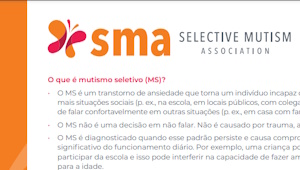Online Library
Selective Mutism & College Prep
Venturing off to college, even if locally, can be anxiety provoking for any child and parent. This is compounded even further for young adults who still suffer from anxiety disorders like selective mutism and social anxiety. Fortunately, there are a few avenues to make this process smoother for all involved.
Pre-College Programs
One piece of advice you’d receive from just about anyone who works with anxiety would be practice, practice, practice. The same can be said about going off to college. Many colleges and universities have pre-college programs for high school students during summers. Some of these are for-credit programs where the courses are more rigorous, and the student can receive college credit to transfer to their eventual college. Other programs are non-credit where the courses are more relaxed, and students do not have to worry much about their grades. The classes are still real courses and they are expected to take part in the work, but there may not be as much pressure since many are just pass/fail.
Some of these programs are shorter in duration (1-2 weeks) and others are longer (4-10) weeks. In either case, high school students can get the experience of living on a college campus, going to classes, and living on their own in a structured summer program. Some programs may just be to take the class and others may involve living there as well. Different schools have different programs for specific age ranges, but many students can do them as soon as 9th or 10th grade. Topics are vast depending on the school, so you should be able to find something that your teen is passionate about. If they find the program interesting, it will be much more enticing for them to go rather than something they have no interest in.
These programs can be a great opportunity for teens to practice everything they will have to do once they go to college. A secondary benefit is that they can also begin to explore different majors they might be interested in pursuing later on. Research these programs well in advance of summer because many have applications and deadlines for going. The programs also may be able to grant certain academic and living accommodations. If the teen does a few over many years it can also help them figure out what things they are looking for in their eventual college, like class size, rural vs urban, size of campus, distance from home, etc.
If you google, “College programs for high school students” you will get plenty of results. Narrow down your search by location or by topic like robotics, writing, biology, business, sports, etc.
https://www.teenlife.com/blogs/summer-programs-high-school-students/
https://www.fastweb.com/college-search/articles/summer-programs-for-high-school-students
College Standardized Tests
If a teen received testing accommodations at their high school like extra time or a distraction reduced testing environment with an IEP or 504, they may be eligible to receive those accommodations on college entry standardized tests like the SAT and ACT. Each university has their own policies for granting the request so it’s important to research and get the process started early. The SAT website states that it can take up to 7 weeks to receive approval once all information is submitted—and it will also take you time to gather all the information from your high school—so start early!
ACT: http://www.act.org/content/act/en/products-and-services/the-act/registration/accommodations/policy-for-accommodations-documentation.html
College Accommodations
Most colleges in the US will have an office for students with disabilities that handle any accommodations that a student may need while in college. Colleges will not ask for this information in the application process, but will only ask once a student is admitted. If a teen had academic accommodations in high school, they can submit their documentation to the college and see if they will also grant them.
This does not necessarily only have to be exclusive to academic accommodations, but can also include things like a private dorm room or private bathroom. Not all colleges have these things available, so it is important to see what they are able to provide. The offices can also potentially arrange for you to visit the school and the student’s eventual dorm room before move-in, so everyone knows what to expect when they get there in the fall.




